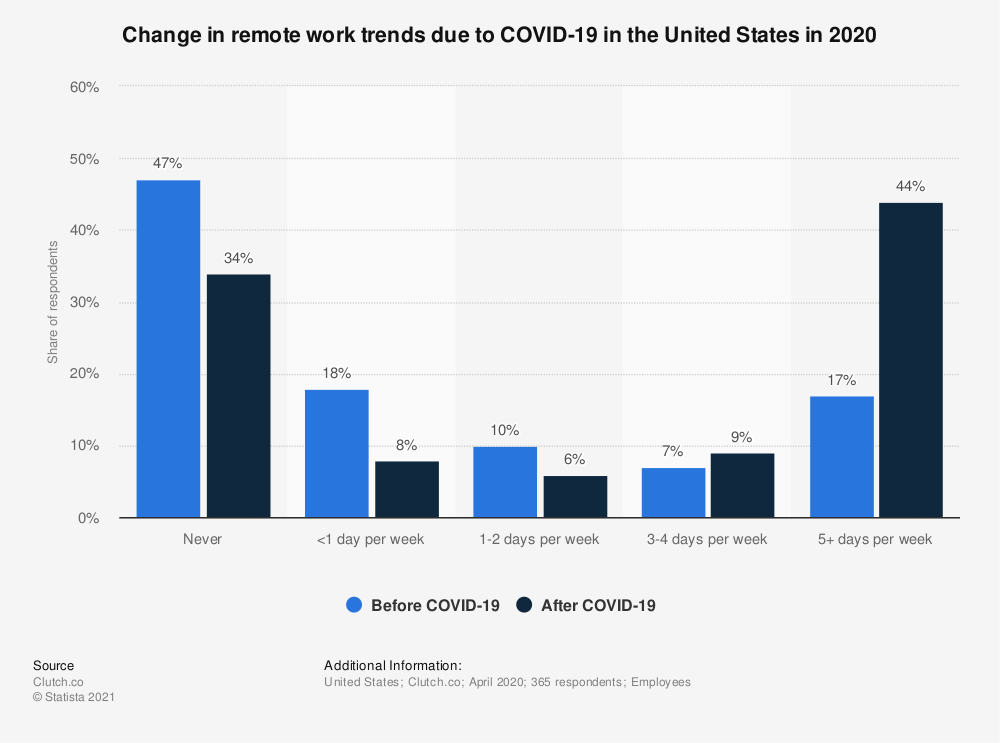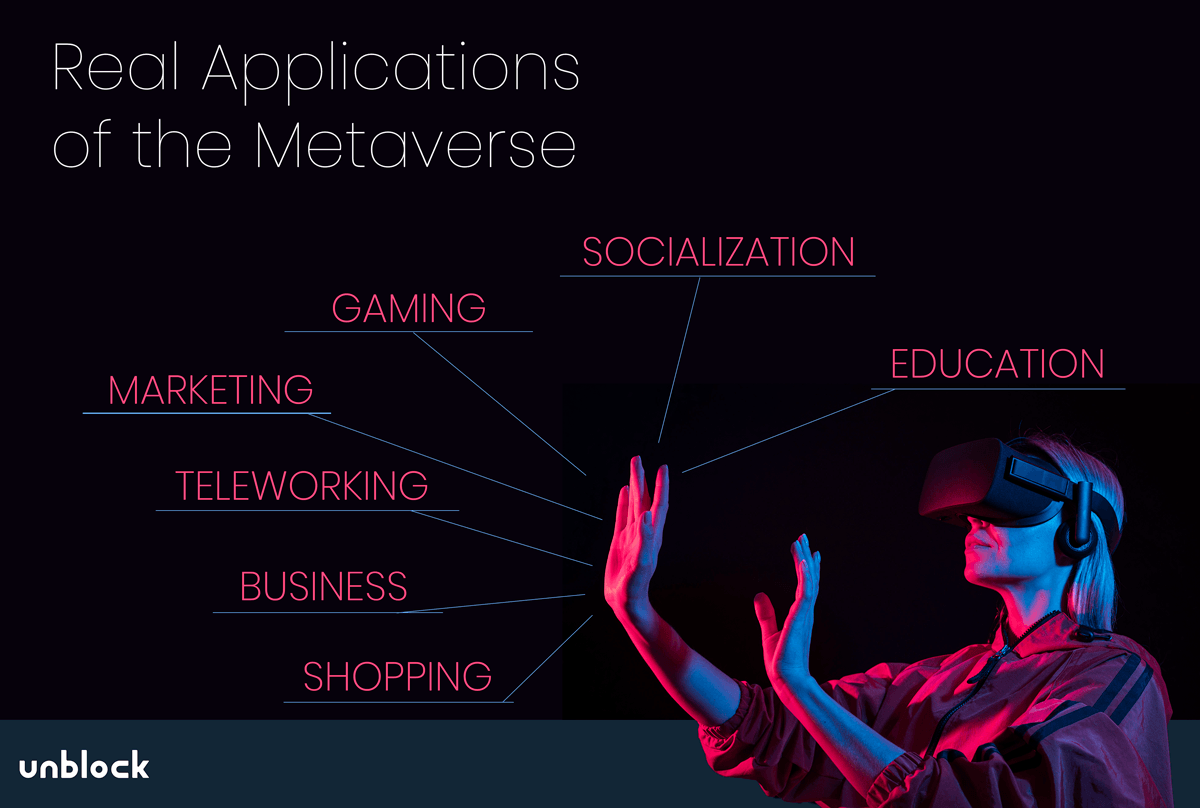In the past year, you had to be living under a rock to not have heard about the Metaverse. Ever since Facebook (now Meta) announced its consequential involvement in this virtual world, an evolution towards a living, breathing virtual universe seems inevitable. However, the transition to a full-fledged metaverse seems to be filled with ethical challenges.
In this article, we explore the metaverse, its use cases, and how blockchain technology perfectly fits in this narrative. Moreover, we will have an in-depth look into the ethical implications and pitfalls of the metaverse, and how decentralization might be the key to avoiding them.
But before we delve into the ethical particularities of the metaverse, let’s first try to define it. This should help us understand why this virtual world has become such an unavoidable evolution in how we interact over the internet.

What Is a Metaverse?
The metaverse is a virtual world that users can freely explore and evolve in. In this alternate reality, your avatar is able to interact with millions of people around the world, as if you were all in the same place simultaneously.
Where the internet provided us with tools to communicate and collaborate at a distance, the metaverse enhances this experience exponentially. It merges our physical and digital identities and allows us to participate in life-like events, regardless of where we are. What used to be a science fiction concept depicted in books and movies seems palpable today.
Since the advent of COVID19, humanity has been hard-pressed to adapt to a remote-only lifestyle. People and businesses have realized that remote work is essential to their survival and thus, teleworking doubled since the pandemic. And research shows that this increase will most probably remain permanent.

Additionally, people needed to socialize and entertain themselves during the lockdowns. This led to an explosion of social media usage and online meetups. Although governments have lifted most pandemic measures, it’s unlikely that online-only habits for socializing will wind down anytime soon.
Fortunately, the evolution of technology has been able to meet this demand for virtual interaction. In the last decade, we have created extremely powerful computers and pushed the internet to unprecedented speeds.
Moreover, with the democratization of hi-end tech, the mainstream consumer has gained access to virtual reality technology that only the mega-rich could previously afford. And finally, let’s not forget that we all carry supercomputers in our pockets. Our smartphones with their powerful cameras and realistic screens provide groundbreaking augmented reality features at a push of a button.
Consequently, not only can the virtual world experience be enhanced with VR and AR, but these features have become easily attainable for the regular joe.
What Use Cases Will the Metaverse Have?
The metaverse has the goal of making online interactions more palpable and immersive. Even though mainstream media often shoehorns it into a handful of applications related to social networking and gaming, a digital, vibrant virtual world has limitless possibilities. We could make use of the metaverse to enhance most of our online interactions, such as:
Communication and socialization
Connecting with your friends could evolve from simple webcam Zoom calls to a fully immersive 3D VR experience. You could meet with your friends in a virtual representation of New York City or simply invite them to a digital version of your own living room. You could watch movies, listen to music, or have a house party, even though you are on opposite sides of the world. Additionally, everyone can personalize their avatars as they see fit, allowing you to become anyone you want in the metaverse.
Teleworking
Remote work is one of the fastest-growing trends since the COVID19 pandemic. People have realized that it’s both cheaper and more convenient to work from home. Workers aren’t quite eager to return to office work, even though pandemic restrictions have been lifted.
As such, businesses that need a more hands-on approach with their employees have limited options for providing teleworking options. By not offering remote work positions to the growing remote-only workforce, they become less competitive on the job market.
The metaverse can allow all businesses to seamlessly integrate remote working and provide work-from-home perks to new employees. Additionally, companies can provide better and more effective training to new hires, regardless of their geographical situation.
Live entertainment and sporting events
The sports and entertainment industries suffered considerably due to travel restrictions and distancing protocols. Major events such as the Tokyo Olympics took place without spectators, hindering the experience for both viewers and athletes.
The metaverse could allow anyone, anywhere in the world to circumvent any geographical limitations. You can experience VR-enhanced concerts from your favorite artists or watch an NBA game from a courtside seat. Moreover, this could democratize the prohibitive prices of live entertainment and allow more modest individuals to enjoy such events.

Gaming
The metaverse provides a much more flexible gaming experience, where users will be able to directly immerse themselves in the virtual world. Moreover, the games themselves become social platforms where users interact, build relationships, and thrive. It also opens opportunities for gamers to access groundbreaking play-to-earn schemes and profit from the time spent on their favorite hobby.
Education
Virtual reality can considerably enhance the effectiveness of online classes by increasing engagement from students and teachers. The classroom can be virtually transported anywhere, and provide students with hands-on experience about the subject they are learning. Teachers could lecture students about the pharaohs, and reinforce their lesson with a virtual tour of the pyramids of Giza.
All in all, metaverses provide an immersive learning experience and an opportunity for equality in education. VR education can push the boundaries of schooling by providing vast and continuously updated learning resources. It also allows students all over the world to collaborate and share their knowledge.
Business and Shopping
As a living, breathing virtual world, the metaverse opens up incredible opportunities for online businesses. Brands can create virtual shops with faithful depictions of their products, making it easier for consumers to shop from home.
For example, shoppers could visit virtual stores to try out clothing pieces on their avatars before purchasing them. On the other hand, augmented reality can allow you to transpose a piece of furniture directly into your living room and help you decide whether it fits with the rest of your decorating scheme.
Advertising and Marketing
Just like the real world, metaverses provide countless opportunities for advertising. First, there are classical ads such as VR billboards, sponsored content in social hubs, and product placement in games.
However, we can also consider the metaverse as a new medium for storytelling. Brands can create visual experiences that tell a story, allow users to interact with their product, and eventually make a purchase without ever leaving the metaverse.
To sum up, as a digital representation of our world, the metaverse creates limitless possibilities on how we can interact with each other. It blurs out the geographical boundaries and provides equal opportunity regardless of economical background.
Nevertheless, the implementation of this seemingly inevitable innovation is not as straightforward as it seems. There are some ethical challenges ahead that we shouldn’t brush away, regardless of our skepticism or enthusiasm for the metaverse.
Ethical Concerns With the Metaverse
By now, you should have a good idea why many consider the metaverse as the next level of online communication. However, this deeper, more personal interaction can have some serious ethical repercussions on both our physical and digital personas.
Privacy
Consumers tend to accept privacy policies and EULA’s without even reading them, and this trend will certainly continue in the metaverse. Currently, companies already track the vast majority of our actions, with our consent. They know where we click, what we like, and the subjects we talk about.
In the metaverse, they will be able to record even more personal data, such as your brainwaves, body movement, and physiological responses. And with so much personal information at their disposal, companies can flawlessly predict your reactions. This can allow them to manipulate consumer behavior and nudge users in the direction that benefits them the most.
Moreover, the fact that VR headsets transmit biometric data opens a whole new can of worms regarding privacy. All of the collected data will be stored on a server, which can greatly increase security risks. If hackers manage to get hold of this information, they will be able to effortlessly steal your identity and access every segment of your virtual and physical life.
Identity
Social media platforms have different approaches regarding identity on the internet. Platforms like LinkedIn and Facebook require some personal data, while others, like Twitter or Reddit, let you hide behind an alias. But how should we treat identity in the metaverse?
When we are born, we accept the hand we’ve been dealt – our geographical situation, economical background, and social status. Will the metaverse allow us to reroll our character and become someone completely different? Or should we be compelled to become a mirror image of our physical self?
In either case, current deepfake technology presents a clear danger to our digital identity. Even with advanced biometrics, hackers could impersonate you in the metaverse and hurt your online image.

Social Media Toxicity, Cyber Bullying, and Sexual Harassment
Social media can sometimes be a toxic, miserable place. Safe behind their screens, keyboard warriors are quick to propagate hate speech and bully others for their appearance, nationality, or opinion. Sexual harassment is also rampant on social media and unfortunately, it’s a tendency that will most certainly translate to the metaverse.
What’s more, the enriched sensations of the metaverse, such unfortunate practices could have even more severe results on the psyche of the bullied. To combat this trend, metaverses need to agree on a global, ethical framework. Unfortunately, governments are slow to catch up on new technologies. Law enforcement needs to seriously step up their game to supervise and punish such malpractices.
Centralization and Corporate Ownership
Finally, one pivotal aspect of metaverses is that they need to be accessible to anyone, without discrimination. However, as things stand currently, companies like Meta and Microsoft push for corporate ownership of their respective virtual worlds.
This centralization of the metaverse suffers from a major issue – censorship. Companies are able to decide how their platforms can be used, hindering free speech and impeding artistic expression. The company can suddenly change the way the metaverse operates, without any consensus from its userbase.
Moreover, the company will own all the digital assets on such a centralized metaverse. Just like PayPal can suddenly decide to block your account for disrespecting their TOS, companies that own the metaverse can arbitrarily ban your account and remove access to all your valuable digital assets. Imagine having considerably invested in digital real estate to only suddenly lose any access to your account or assets.
How Does Blockchain Fit Into This Narrative?
For long-term viability, metaverses need to present attainable economical incentives. To achieve this, they require a functioning, burgeoning economical model that allows its users to translate the value of their digital assets into the real world. Blockchain seems like the perfect tool to do this, as it can solve some of the main caveats of the metaverse through sheer technology.
NFTs in The Metaverse to Provide Economical Incentives
NFTs or non-fungible tokens allow us to record anything of value on the blockchain. Through the power of smart contracts, we can define every single digital asset in the metaverse as an NFT and provide digital ownership to the holder of the private key. In a nutshell, the owner of the NFT is the only person that can access their assets. No single entity can decide to revoke the ownership of these assets, as they are directly tied to the user’s private crypto wallet.
In the metaverse, NFTs could be used to represent the user’s avatar and clothing. But they can encompass much more valuable assets such as art pieces, vehicles, the virtual version of their home, or the privately-owned NFT land parcels where they own digital real estate.
What’s more, one of the main characteristics of NFTs is that they are easily transferable from one user to another. You can list your digital clothing, artwork, or land on NFT marketplaces such as OpenSea and sell them for profit.
This transferability also gives these digital assets real-world value. Following the simple laws of supply and demand, NFT assets could increase or decrease in value just like in the real world. Thus, allowing both NFT creators and speculators to access a new income opportunity, creating a viable economy for the metaverse.
Some digital land parcels in blockchain metaverses like decentraland and The Sandbox already provide passive income for landowners. It’s only a matter of time when banks, insurance companies, pension funds, and many more sectors of the real-world economy will start connecting to these new systems to remain relevant.
Decentralization for Transparency and Increased User Control
One of the main drawbacks of corporate-controlled metaverses is that they have control over your assets, avatars, and the way you can interact with the world. They reserve the right to provide access or revoke it or change how users can participate.
Blockchain-based metaverses, on the other hand, are permissionless and have a predefined set of transparent rules that cannot be changed by a single entity. For any modification of these rules, they require proper consensus from the userbase or the holders of the governance token of the blockchain. Blockchain metaverses give control back to the users by letting them vote on further developments of the virtual world.
This allows the creation of DAOs within the metaverse, that can focus on different aspects of how virtual worlds function. They are able to give sound proposals and implement changes regarding ethical, political, or economical aspects of their respective metaverses.
Increased Privacy and Security
Finally, blockchain technology could be the ultimate solution regarding the privacy and security issues on the metaverse. The decentralized ledger is inherently secure, as it doesn’t present a single point of failure as servers do. Metaverses based on the blockchain cannot be realistically hacked, or any of the personal data compromised.
However, what’s even more important is that users will be able to manage their personal data, as they will be able to own it on the blockchain. They can opt in to share or sell this information for a more complete experience, or choose to keep everything private.
We Aren’t Out of the Woods… Yet
With all that in mind, we should note that blockchain doesn’t magically solve all of the metaverse’s ethical issues.
NFTs still have some serious drawbacks, such as their environmental impact. NFTs consume as much electricity as a small country on a yearly level at the moment. While we are slowly shifting towards greener and more sustainable blockchain models, we are still far from making NFTs carbon-neutral, to the very least.
Also, there’s the caveat that with digital ownership, users are fully responsible for their assets. In case of a user error, there are no intermediaries that can help you recover your valuable digital assets.
Moreover, in the metaverse, many will choose to be represented as their own digital double. Showcasing metaverse wealth in the form of expensive NFT art, vehicles or real estate could be a recipe for disaster in this case. Users might become even more vulnerable to $5-wrench attacks and attract criminals that would want to harm them to gain access to their private keys.
Conclusion
The metaverse is the logical evolution of the internet. With technology allowing us to access a more realistic virtual world than ever, we can expect that everyone will slowly shift to this method of communication in the future. What’s more, metaverses present some concrete advantages over traditional internet communication. They allow for higher engagement and better collaboration between peers.
Nevertheless, metaverses will present some ethical challenges on the way. Corporations could easily abuse their grip on users, and take advantage of privacy loopholes. And by controlling the metaverse economy, single entities could control our real-world economy.
However, blockchain technology already solves some of these issues. Cryptography in combination with a distributed ledger provides the necessary tools to provide a better metaverse ecosystem. Digital ownership of both fungible and non-fungible assets, increased privacy, and full transparency are all essential elements that push blockchain as the forefront technology for creating a viable metaverse.